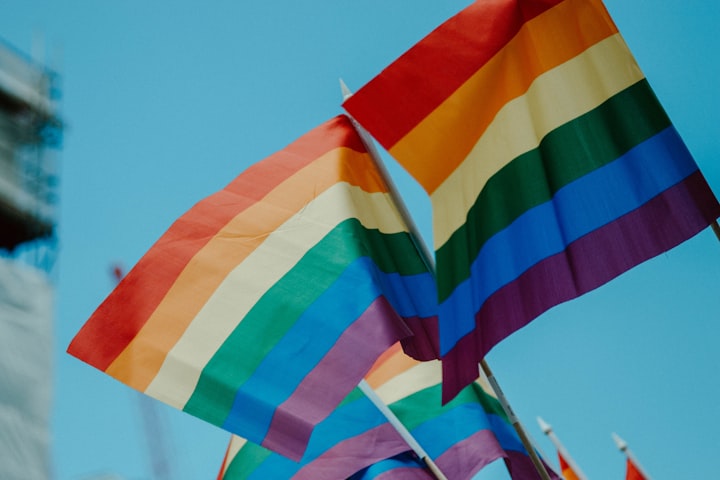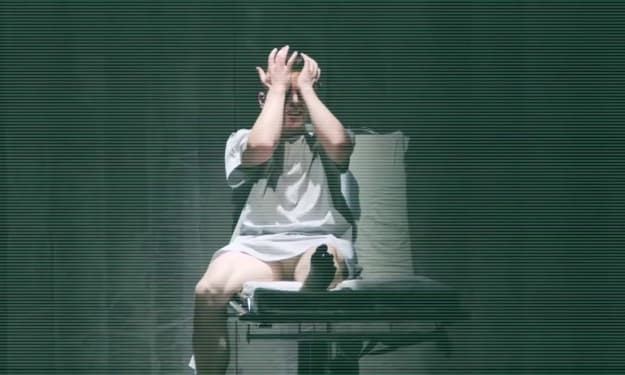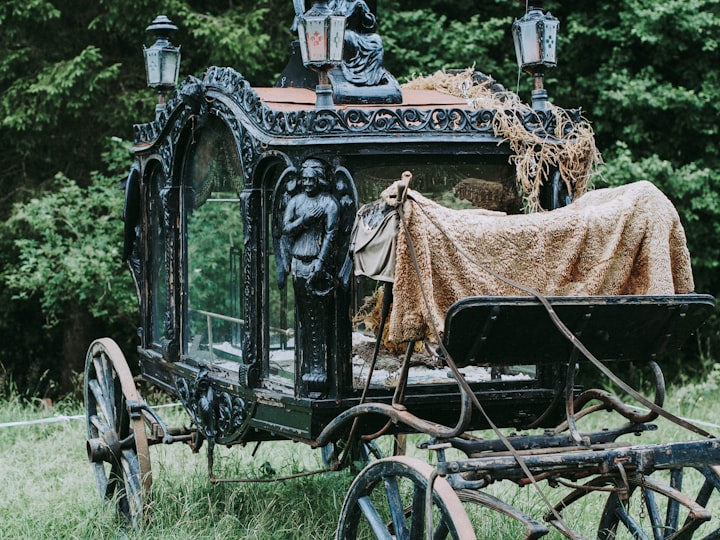The Proudest Playlist
We're Here! We're Queer! Get Used To It!

It's pride month and I couldn't be happier... or prouder. After a year which has on a global level changed our lives and perspectives, it has never been more important to come together as one and celebrate and hug our friends and family, spend time with them, re-connect.
This never comes more prevalent than the month of June. Pride Month. A month for the LGBTQIA+ community, their friends, allies, and families to come together in celebration of the impressive scope of humanity. It took years, decades, to arrive at a time when it was acceptable to love someone of the same sex, to exist in the gender (or lack of) you were meant to be, to be whoever you are. The spectrum of colour that proudly embelishes the flag that represents our community is a beautiful reflection of our humankind - we are all different colours, genders, sexualities, sizes, ages - but this spectrum of different kinds of people, and people living their lives as their true selves is so undescribably beautiful. It could make me cry.
It's true there is still work to be done. While tolerance appears at an all time high, hate crimes are also up, workplace discrimination laws against homophobia are flimsy where they do exist at all, and there is still 70 countries that criminalise being LGBT+, 12 of which where the punishment is death.
And only in the very recent past, 5 years ago almost to the day, there was a deadly shooting inside Pulse - a gay nightclub in Orlando, Florida - where 49 people were killed and 53 more were wounded.
And that is why Pride and Pride Month are so important. It rightly celebrates the progress that has been made over the past several decades and our gay grandparent generation that were beaten, abused and ridiculed but fought against it to give us the rights we have today. But it also serves as a warning for the fragility of the community, and the leaps and bounds that are yet to be made, at home and abroad.
Music embodies gay culture. Homophobes like to take 'gay culture' out-of-context and use it against us to dehumanise the community. But the community has a deep rooted sense of committment to each other. We are strong and we stand behind each other and we never let one of our fellow brothers or sisters suffer as a result of hate. I like to think of the community as a shield that protects those that need it most, who can't be safe out of the closet.
That brings me to the first song on The Proudest Playlist.
People Like Us by Kelly Clarkson
I reckon that it is physically impossible not to feel empowered when listening to this song. Not only is it a great song by a great artist in itself, it emphasises 'the community', which is not necassarily the gay community or any other specific community, but it beautifully highlights that you are not alone. When you are in a dark place, someone will be there to help guide you back towards the light. It creates an us. A prescence. It gives power to the people and for the LGBT+ community it's words ring so true. From my personal experience when I was at rock bottom, it was my fellow gay's that gave me a helping hand to get out of the deep trench I had buried myself in.
This song offers strength, hope and a reminder to 'keep your head up' because nothing lasts forever, and it will always get better.
But let's take it back a few decades. The LGBT+ voice grew from inspirational music and musicians that offered a safe haven for those who struggled with their sexuality, at a time where admitting you were gay could have you beaten up, arrested or fired.
When people like Freddie Mercury, Elton John, Boy George, David Bowie, Grace Jones and Cher amongst a stream of other artists emerged, it offered companionship to those who didn't fit in with the norm. It challenged masculinity, and femininity, and sexuality. It gave a voice to the voiceless. Facing a backlash against those who said it was 'lewd', a 'sin', and 'detrimental to the children', music offered a sanctuary to a group who had long lived underground.
Oldies but Goldies - for the Classic Gay in Us All (Part 1)
As a young gay, desperate to project my built-up homosexuality (#flair), in a world that told me it wasn't ok, Freddie belting out 'I Want To Break Free!' helped me self-express - I got it, and he got me. I understood this intense frustration that, at the time, was my entire world. A forbidden secret.
At 13, when I came to terms with my sexuality (a phrase I don't love, but appropriate in the circumstances at the time), I hadn't quite gotten to grips with gay culture*. And that's where old musicians like Freddie and Annie Lennox excelled. They were ahead of their time. Coming to terms with sexuality was confusing, and for me personally I thought it was a terrible thing with 'gay' constantly being used as a slur, and my classmates groaning at disgust at two men kissing on the telly during some 'social studies' class where the intent had been the opposite.
*I will use the term gay culture fairly frequently, I expect, throughout this article. I want to highlight that I see gay culture as an extremely positive thing. Although the term has been misconstrued and used against us, I think we should embrace it like a cloak, be proud of what makes us, us.
Similarities can be drawn from this secret you keep quiet to yourself and the musicians who battled against prejudice to produce music that was against the views of mass media and politicians alike. Eventually this secret you have been overwhelmed with comes bursting into view, and a beautiful thing is created - be it a song, or a person finally realising their truth.
Oldies but Goldies - for the Classic Gay in Us All (Part 2)
Some old songs were never produced for the purpose of supporting or assisting with the LGBT+ cause, but have since been adopted by the gay community because they relate to the situations we find ourselves in.
Judy Garland, for example, was an avid supporter of the gay community when it wasn't popular to publically declare so. Madonna sang Vogue, in support of the African-American and Latino style of dance that originated from the gay and trans people of New York. And Cyndi Lauper gave us 'True Colors' - an appropriate song for many reasons.
What Happened Next?
As acceptance for the LGBT+ community slowly grew in the late eighties and into the nineties, more artists came out with music that not only supported the gay community, but further added fuel to the arguements for gay rights.
Amazing musicians stood up for the community. Artists began coming out of the closet. Magazines and TV began changing attitudes that didn't use the same anti-gay rhetoric that had plagued the same forms of media so prevalently. It wasn't perfect, and it was an uphill battle, but it was a start. Meaningful change doesn't happen overnight. It takes steps, and growing conversation, tolerance and acceptance.
The AIDS epidemic had hit giving a wave of new support (and critism) for the community, but importantly it started a conversation, albeit under heartbreaking circumstances.
The 90's songs below give a flavour of what we were listening to, and continue to listen to, as part of our gay culture.
In terms of 'gay music' it was, arguably, a forgettable year. The classics that have survived from earlier decades have stood the test of time where I feel the nineties might struggle and they are less on-the-nose as the music of the current generation which grows in popularity in line with increased tolerance and acceptance.
But, as a 90's baby, I feel a certain longing to want to commit to the songs of this decade.
Today
I feel fortunate to be the age I am - 23. As my own homosexuality has blossomed, so has the music that represents gay culture. A whole spectrum of artists and musicians (both in terms of sexual orientation and gender) are out, proud, and doing a brilliant job of representing the community.
To mirror the start of this article, we are lucky to have the privelage we do have, but should recognise the long path we have yet to pave for our future generations of gays.
And it's important to recognise my own privelage. As a white, male, gay, I realise that I have an easier time than so many others. Sub-communities such as women, the trans community, gender non-comforming, gender neutral and fluid, and black, asian and latino communities (all relating to sexuality and gender) face far more challenges than I do. It breaks my heart, and I hope the gay community can widen it's perspective to truly be there for all members of the community regardless of anything as it has been for me.
This last list of songs on The Proudest Playlist are a collection of my personal favourites relating to gay culture from the last few years. Some are happy, some are sad. But all are reflective of my membership to the gay community, make me proud to be gay, and I believe further the cause we spend every day fighting for (not just in the month of June!)
So sing, dance, and grab your nearest and dearest and enjoy Pride month.
About the Creator
Callum Wareing-Smith
“Words! Mere words! How terrible they were! How clear, and vivid, and cruel! One could not escape from them. And yet what a subtle magic there was in them!” - Oscar Wilde






Comments
There are no comments for this story
Be the first to respond and start the conversation.